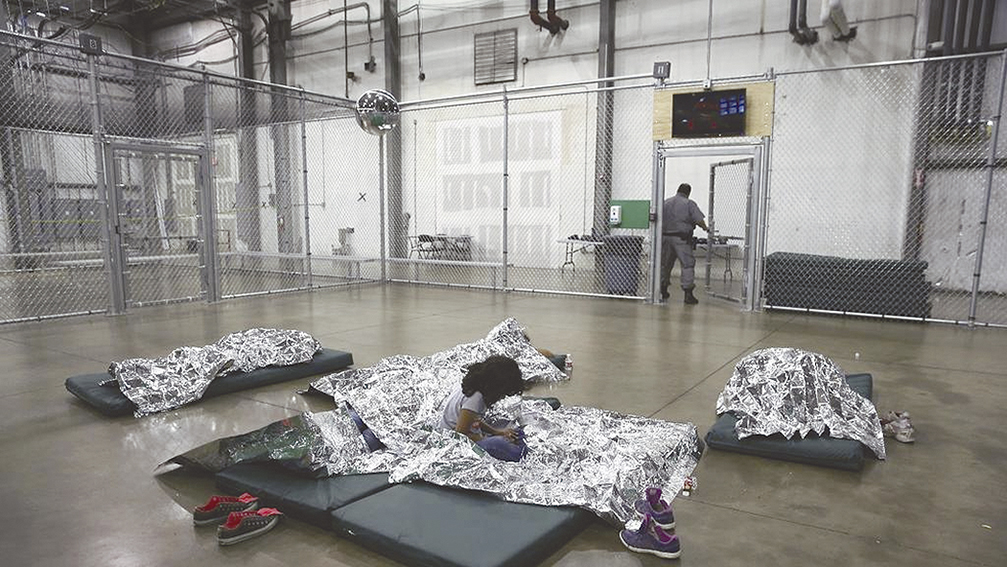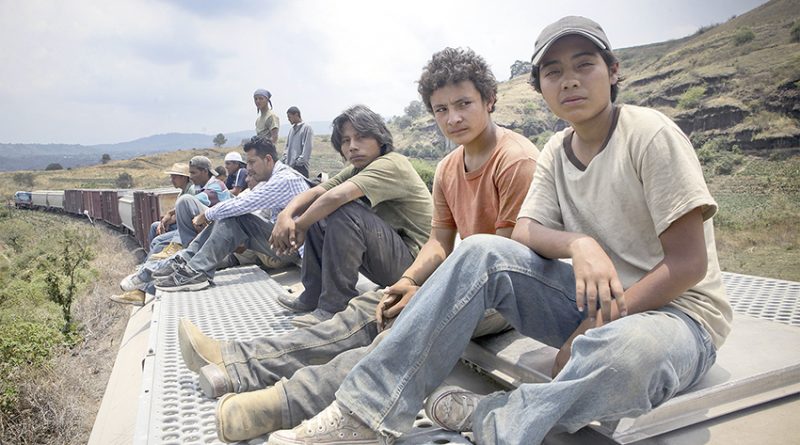El traumático desamparo de los menores migrantes / The traumatic abandonment of migrant children
Por David Torres | WASHINGTON, DC
De todas las víctimas de la política migratoria del gobierno de Donald Trump, los niños migrantes ocupan —y ocuparán en el análisis posterior de este periodo de la historia de Estados Unidos— un sitio especialmente doloroso.
A ellos se les ha separado de sus padres al llegar a la frontera sur a solicitar asilo, tras huir de situaciones de extremo peligro en sus lugares de origen o de la lacerante pobreza que muchos de ellos padecen junto con sus familias.
También se les ha detenido y enjaulado durante más del tiempo legalmente establecido sin poder ver a sus seres queridos, y para los que aún se atrevan a intentarlo se les ha amenazado con prolongar dicho periodo de detención indefinidamente.
También se les ha humillado por parte del personal que está a su cargo negándoles los utensilios básicos de limpieza, además de que en muchos de los testimonios de estos menores ha quedado asentado que han sido maltratados física, verbal y sexualmente.
Otros tantos de ellos, aun siendo menores de edad, han tenido que hacerse cargo de otros pequeños detenidos que no conocen, pero con los que padecen por igual un desamparo compartido.
También se les ha amenazado con no volver a ver a sus padres, y en la confusión de estos pequeños, muchos han llegado a pensar equivocadamente que fueron abandonados por sus propios progenitores, lo que les ha llevado a situaciones de frustración, terror, enojo, pánico y tantos otros padecimientos emocionales que difícilmente los dejarán en paz durante el resto de sus vidas, como el estrés postraumático, ya sea que sigan aquí o que hayan sido deportados.
Y todo ello bajo la tutela cínica de una serie de políticas migratorias que, más que controlar y regular los flujos migratorios, han creado una verdadera crisis humanitaria en la frontera y un severo daño psicológico en toda una generación de menores migrantes difícil de sanar.
En efecto, los representantes del gobierno visitaron 45 instalaciones que tenían a cargo el cuidado de menores migrantes y, según el reporte, entevistaron a unos 100 especialistas en salud mental que corroboraron todos y cada uno de los puntos citados arriba, para llegar a la conclusión de que al trauma que ya arrastraban los niños y las niñas desde sus lugares de origen, pasando por mil peligros durante su trayecto hasta la frontera México-Estados Unidos, se agregó otro trauma igualmente doloroso al darse cuenta de que el país que anhelaban como salvador y sanador, no solamente les cerraba las puertas, sino que los castigaba con el encierro y la separación de sus padres por atreverse a pedir refugio.
Porque de lo que se trata, en todo caso, no es de “reconocer” solamente que se ha hecho daño de manera irreversible a esos menores, sino de que dichas políticas migratorias no se ejerzan más porque son contrarias a la defensa de los derechos humanos y porque contravienen incluso convenciones internacionales de protección al menor.
¿Qué país o qué otra región del mundo tomará el relevo si el Estados Unidos contemporáneo se convierte finalmente en una fortaleza infranqueable para nuevos inmigrantes, especialmente no blancos, pobres y sin documentos?
Mientras las nuevas rutas migratorias se vayan definiendo por los propios migrantes en busca de, en lo posible, nuevos horizontes menos hostiles, valdría la pena enfocarse en el aspecto de lesa humanidad que representa el actual daño que han infligido las políticas migratorias del presente gobierno a los menores migrantes, daño que deberían estar atendiendo ya organismos internacionales, y juzgar a quien haya que hacerlo, en memoria de otros menores que fueron igualmente maltratados en otras épocas de la historia humana. (America’s Voice)

ENGLISH
By David Torres | WASHINGTON, DC
Of all the victims of the immigration policy of the Donald Trump administration, migrant children occupy —and will continue to occupy, in the posterior analysis of this period of United States history— an especially sad place.
They have been separated from their parents upon arriving at the southern border requesting asylum, after fleeing from situations of extreme danger in their places of origin or from the lacerating poverty that befalls many of them, along with their families.
They have also been detained and caged for longer periods than legally allowed, without being able to see their loved ones, and for those who still dare to try they are threatened with a prolonged period of detention, indefinitely.
They have also been humiliated by the very people who are supposed to take care of them, denied tools for basic hygiene, and on top of that in many testimonies these young people have reported that they have been mistreated physically, verbally, and sexually.
Others of them, still minors, have had to care for detained children that they do not know, but who similarly are faced with this shared abandonment.
They have also been threatened with never being able to see their parents, and in the confused minds of these young ones, many have come to believe, mistakenly, that they were abandoned by their own progenitors, which has caused them to feel frustration, terror, anger, panic, and so many other emotional anguishes that will make it difficult for them to live in peace throughout the rest of their lives, like post-traumatic stress, whether they remain here or end up being deported.
And all of this under the cynical guardianship of a series of migration policies that, rather than controlling and regulating migration flows, have created a real humanitarian crisis along the border and severe psychological damage among an entire generation of young migrants that will be difficult to heal.
In sum, government representatives visited forty-five installations charged with caring for migrant children and, according to the report, interviewed one hundred mental health specialists who corroborated each and every one of the points cited above, in order to come to the conclusion that that trauma these boys and girls have already been dragged through since their places of origin, passing through a thousand dangers along their trip to the US-Mexico border, added to another trauma, equally painful, upon realizing that the country that they looked to for safety and security had not only closed its doors, but punished them with incarceration and separation from their parents for daring to have asked for refuge.
Because what it is about, in every case, is not simply “recognizing” that they have done irreversible damage to these young people, but that said immigration policies should not be used any longer because they go against the defense of human rights and even contravene international conventions for the protection of children.
What country or other region of the world will step up if the contemporary United States converts, finally, into an impenetrable fortress for new immigrants, especially those who are non-white, poor, and undocumented?
While new migration routes are being defined by the migrants themselves in search of, if possible, new and less hostile horizons, it would be worth focusing on the aspect of crimes against humanity that the migration policies of this present government have inflicted on migrant children, damage to which international bodies should already be attending and punishing its perpetrators, in the memory of other children who were equally mistreated in other periods of human history. (America’s Voice)


Debe estar conectado para enviar un comentario.